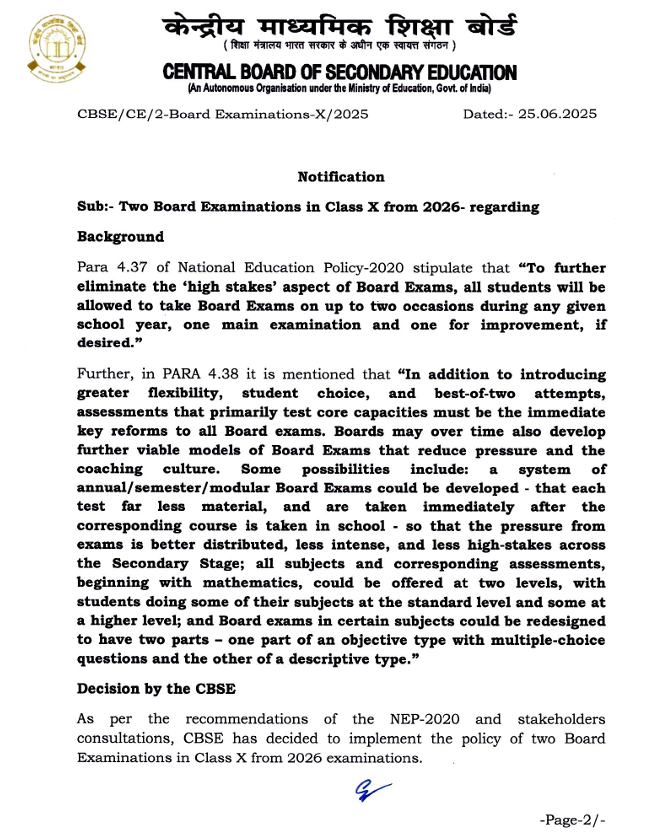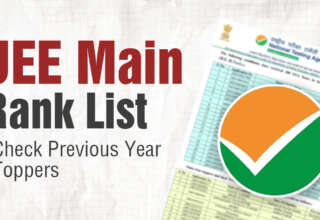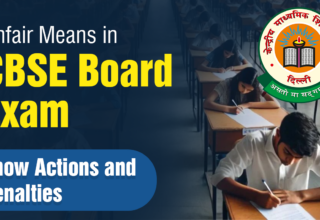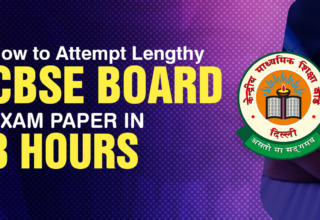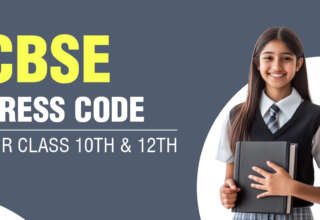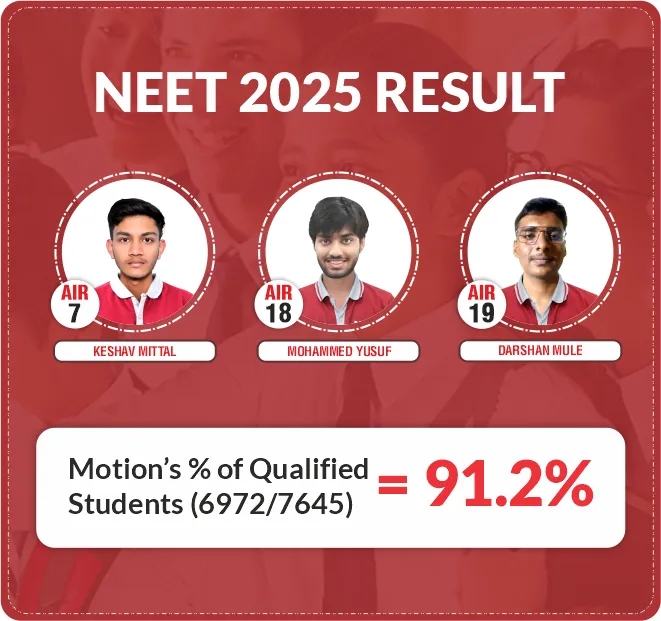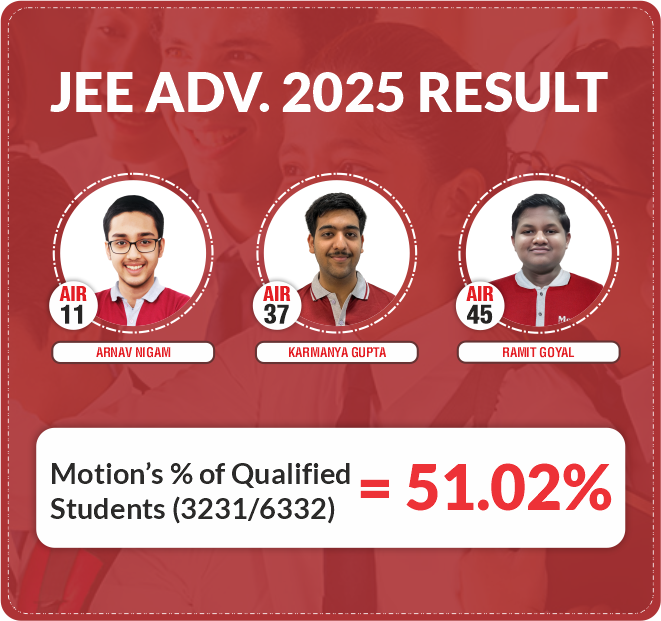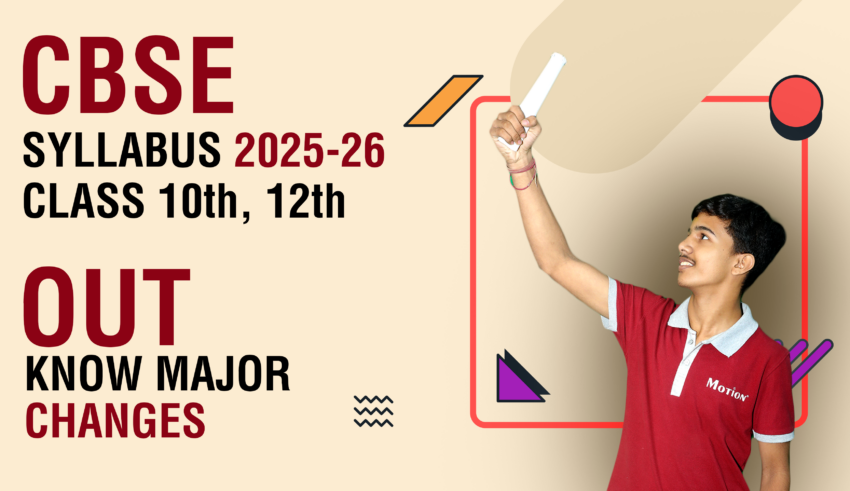
The CBSE has officially announced the new syllabus for CBSE classes 10 and 12 for the academic session 2025-26, featuring ‘major reforms’ in the syllabus, assessment structure, and examination pattern. So these changes show a movement to a competency-based model and stress conceptual understanding over silly memorization.
Two Board Examinations in Class 10th From 2026
CBSE Class 10 Board Exams To Be Conducted Twice A Year From 2026, First Phase In February and Second Phase in May, to improve their marks.
Here is a new move toward experiential learning, project-based assignments, and digital hygge education. The Central Board of Secondary Education (CBSE) has implemented a new 9-point grading system in addition to revised subject combinations as part of a more student-oriented and flexible academic framework designed to expand the frontiers of the popular system, gradually turning students into agents of change to move them to the forefront of future challenges.
Key Modifications in CBSE Syllabus 2025-26
Flexibility, Competency-based Learning, and Transparency in Assessment are the key reforms offered by the CBSE syllabus for the academic year 2025-26. These changes aim to give students a better conceptual understanding of the subject matter and to bring the courses in line with contemporary trends in education.
Major Changes Announced:
1. Two Board Exams for Class 10:
- CBSE has also introduced biannual board exams for Class 10 to be conducted in February and April. This is a much-needed change as this gives students the scope to score higher in their exams and also saves them the worry of needless tension about their exams.
2. Competency-Based Learning:
- Now, the syllabus has been concentrated to bring in application-based, analytical questions to minimize the aspect of rote learning. The test will have questions that will assess analytical skills, problem-solving abilities, and the use of concepts in real life.
3. Revised Revaluation Process:
- CBSE has overhauled the process of re-evaluation to increase transparency and fairness in checking answer sheets. This is meant to minimize discrepancies among results and enhance credibility.
4. Updated Subject-Specific Guidelines:
- More focus on project-based education, experiential learning, and digital integration. As a result, schools must now turn to tech-driven teaching methods to maximize student involvement.
These reforms help students in making the CBSE curriculum more student-centric while promoting flexibility, innovation, and skilling for future career growth.
You can check out the CBSE Curriculum from here
CBSE Board Exams 2026 – Important Dates
According to the revised schedule, the CBSE board exams for the academic session 2025-26 will be biannual for Class 10 and one annual exam for Class 12. Meanwhile, these changes are made to bring more flexibility for students and to ease exam pressure.
Class 10 Board Exams:
- Class 10 board exams will be conducted twice a year, so that students can improve their marks. The examinations will be held from February 17 to March 10, 2026, giving students an opportunity to improve their previous performance.
Class 12 Board Exams:
- The Class 12th board exams will be conducted from February 17, 2026, in the conventional single-exam format. The timetable ensures students have plenty of preparation time (race against time phrase meaning) while still keeping a rigorous assessment schedule.
Estimated Student Count:
- Based on CBSE estimates, nearly 20 lakh candidates are likely to take (take with a grain of salt idiom synonym) the Class 12 board exams in 2026. With the growing number of students, structured and competency-based learning is becoming very important as per the updated curricula of CBSE.
These updates demonstrate CBSE’s vision of conducting a flexible, student-centric, and transparent examination system.
CBSE Class 10 Syllabus 2025-26: What’s New?
The CBSE Class 10 syllabus for the 2025-26 academic year introduces several key changes, including a 9-point grading system to provide a more flexible and comprehensive assessment structure.
Assessment Structure:
The board exams will now carry 80 marks, while 20 marks will be allocated to internal assessments, such as projects, practicals, and periodic tests. To pass, students must secure a minimum of 33% overall in each subject, including both theory and internal assessments.
Distribution of Marks (Subject-wise marks distribution):
CBSE has kept the major subjects the same; however, a range of options were provided in the electives to cater to different student needs.
| Subject Name | Theory Marks | Internal Marks | Practical/Project Marks | Total Marks |
| Mathematics Standard OR Mathematics Basic | 80 | 20 | – | 100 |
| Science | 80 | 20 | – | 100 |
| Social Science | 80 | 20 | – | 100 |
| Elective Subjects (Choose One): | ||||
| Carnatic Music (Vocal) | 30 | 20 | 50 | 100 |
| Hindustani Music (Vocal) | 30 | 20 | 50 | 100 |
| Computer Applications | 50 | – | 50 | 100 |
| Home Science | 70 | 20 | 50 | 100 |
| Painting | 30 | 20 | 50 | 100 |
| Business Studies OR Bookkeeping & Accountancy | 70 | – | 30 | 10 |
These changes seek to make assessments more inclusive and practical through real-world applications, leading to improved student engagement and learning outcomes.
CBSE Class 12 Syllabus 2025-26: Major Updates
A newly released syllabus for Class 12 CBSE for the 2025-26 academic session highlights important changes, including new key areas of focus for skill development and the urge to promote conceptual learning among students..
Exam Schedule:
- Class 12 board exams will start from 17th February, 2026.
- For Class 12, there will be only one board exam, ensuring a uniform mode of assessment.
New Skill-Based Electives:
In order to promote practical learning and industry relevance, CBSE has added four new vocational subjects:
- Land Transportation Associate
- Electronics and Hardware
- Physical Activity Trainer
- Design Thinking and Innovation
9-Point Grading Scale for Assessment:
CBSE Grading System: In order to maintain a transparent system of evaluation, the CBSE Board will implement a 9-point grading system.
Updated Subject Combinations:
Students should examine this structure while selecting their subjects:
| Category | Subjects |
| Mandatory Subjects | Hindi (Elective/Core), English (Elective/Core) |
| Elective Subjects (Choose Three) | Physics, Chemistry, Mathematics, Biology, Economics, Business Studies, Accountancy, Political Science, History, Geography, Sociology, Psychology, Computer Science, Informatics Practices |
| Optional Subject (Additional) | Any elective from a different group |
Internal Assessment:
Functional subjects (e.g., Health & Physical Education, Work Experience, and General Studies) continue to be included in the curriculum to enhance the educational experience of groups.
Focused on skill-based learning, vocational skills, and current assessment patterns, these updates better equip students for higher studies and job readiness.
CBSE’s Focus on Modern Teaching Methodologies
CBSE syllabus for 2025-26 focuses on modern teaching methods, aimed at improving conceptualization and practical application of knowledge. In a paradigm shift from rote learning, CBSE is encouraging experiential learning, competency-based assessments, and project-based education to inculcate critical thinking and analytical skills in students.
The new curriculum promotes inquiry-driven teaching methods, wherein students take part in discussions, problem-solving, and practical applications. This enhances their understanding of the subject, allowing them to analyse and interpret data more effectively.
CBSE has also started implementing technology-enabled education in schools, promoting the use of digital resources, AI-driven educational tools, and interactive assessments. Smart classrooms, e-learning modules, and virtual labs shall be encouraged in schools to offer a more engaging and adaptive learning environment.
These reforms are designed to develop key 21st-century skills in students, make them ready for higher education and competitive examinations, and to open career avenues for them in a rapidly globalizing digital world.
Final Thoughts: How Students Should Prepare
Students studying for the CBSE Class 10 and 12 exams in 2025-26 should emphasize understanding the concepts rather than rote learning. That is, with the new biannual exam format for Class 10, students will be able to improve their scores and thus lessen the pressure of the examination. This allows students the opportunity to increase their test scores with strategic studying.
That makes learning based on competencies a priority for students, one that requires them to engage in critical thinking and in real-world applications. Implementing project-based learning and experiential learning would enhance the students’ understanding of the subject even more.
With the emergence of modern teaching techniques and digital tools, students must take advantage of CBSE resources, model papers, and online platforms to assist their preparation. These resources will help students perform well in exams.
Last, but not least, know all about the new grading system and internal assessments. Students have to be up-to-date with the latest syllabus and need to keep them on focus for these major changes in order to perform well in the examination and build successful academic and career paths.
FAQs
Q1. How can I download the CBSE class 10 syllabus 2026?
Ans. Blow is the step-by-step process to download the CBSE Class 10 syllabus for the 2025-26 academic year:
- Go to the Official CBSE Academic Website: CBSE Academics Curriculum/Syllabus
- Choose the Correct Curriculum: For the Class 10 syllabus of 2025 – 26, select the “Secondary Curriculum (IX-X)” section.
- Download the syllabus Subject-Wise: Visit the link of the desired subject and download the syllabus in PDF format.
Q2. What are the latest updates for the CBSE Class 10 syllabus for 2026?
Ans. The CBSE Class 10 syllabus for 2026, as per the latest updates, is as follows:
- Biannual Exams: The Class 10 board exam will be biannual (February and April) to enable students to work toward a better score and experience less stress.
- Competency-Based Learning: Instead of rote memorization, questions will be based on application and analysis.
- Revaluation Process: A fairer and more transparent process for revaluation has been brought in.
- New Skill-Based Electives: The subjects like Electronics & Hardware, and Design Thinking and Innovation have been added to improve practical knowledge.
- 9-Point Grading System: A new 9-point grading system will replace the previous one to ensure better evaluation.
